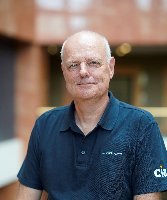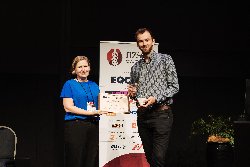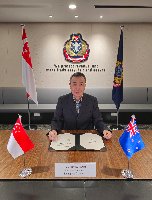UC Engineering excels with $11.8m MBIE Endeavour Funding
Three University of Canterbury Engineering academics
have been awarded Ministry of Business, Innovation and
Enterprise (MBIE) 2019 Endeavour Funding totalling $11.8
million to lead research in areas of renewable energy and
advanced manufacturing.
Professors Conan Fee, Shusheng Pang and Mathieu Sellier all received funding in the latest funding round announced by Hon Dr Megan Woods, Minister of Research, Science and Innovation today.
This research can and will impact society as we look for more efficient solutions to modern challenges, UC Vice-Chancellor Professor Cheryl de la Rey says.
“Funding of Professor Pang’s research into smart and renewable energy highlights the importance of this area for Government, an ambition that also aligns with UC’s commitment to local and regional development,” she says.
“The innovation behind Professor Sellier’s spin-coating research and Professor Fee’s research into using 3D printing technologies to advance manufacturing processes will challenge the status quo of industries and create new possibilities for product developers.”
MBIE Endeavour Funded UC research projects:
Professor Conan Fee, School of Product Design, UC Engineering – 3D printed porous media for process engineering ($9,812,550 funded over five years)
This research project will revolutionise manufacturing processes that have only changed incrementally over the last two centuries. Using advances in 3D print technologies, the research programme will develop ways to create structures of complex solid and fluid channel geometric design to deliver heat and mass exchange more efficiently. Work to date shows that 3D-printed triply periodic minimal surfaces (3D-TPMS) offer significant advantages over existing heat exchanger and porous bed designs, but the knowledge gap between engineering science and computational tools required for the design of 3D-printed structures is preventing implementation in real-world applications, which the research programme will address.
Professor Shusheng Pang, Chemical and Process Engineering – Integrated chemical looping and oxygen uncoupling with advanced biomass gasification, for renewable hydrogen production and carbon dioxide capture ($999,999 funded over three years)
This research will develop a new system that combines advanced technology of biomass steam gasification with the capability of Hot Lime Labs for developing new carbon dioxide sorbents and oxygen carrier materials. This research will develop a new process and materials to produce bio-hydrogen and capture carbon dioxide by using New Zealand wood biomass resources from log harvesting and wood processing. The bio-hydrogen produced could be used as transport fuel, a chemical feedstock for methanol, ammonia and oil refineries. At present 95 per cent of hydrogen used in these industries is produced from fossil fuels. Carbon dioxide captured from this process could be used in plant greenhouses, fertiliser manufacturing and methanol or ethanol production.
Professor Mathieu Sellier, Civil and Mechanical Engineering – Development of a multi-axis spin-coating system to coat curved surfaces ($1,000,000 funded over three years)
By developing a system with the capability to spin-coat curved surfaces product developers will have more flexibility in the shapes they can produce. Traditionally, spin coating is achieved by depositing a liquid on the surface and then spinning it off to leave a thin film that will solidify. Non-uniformity of liquid distribution is the biggest challenge to spin-coating curved surfaces. For the first time, Professor Sellier’s Smart Idea will develop optimal flow control algorithms using the theory of Partial Differential Equation and a multi-axis system to achieve uniform distribution of liquid onto a curved surface which will revolutionise the possibilities of product development.
ends


 John Mazenier: Gaffer Tape And Glue Delivering New Zealand’s Mission Critical Services
John Mazenier: Gaffer Tape And Glue Delivering New Zealand’s Mission Critical Services Earthquake Commission: Ivan Skinner Award Winner Inspired By Real-life Earthquake Experience
Earthquake Commission: Ivan Skinner Award Winner Inspired By Real-life Earthquake Experience Reserve Bank: Consultation Opens On A Digital Currency For New Zealand
Reserve Bank: Consultation Opens On A Digital Currency For New Zealand NIWA: Ship Anchors May Cause Extensive And Long-lasting Damage To The Seafloor, According To New Research
NIWA: Ship Anchors May Cause Extensive And Long-lasting Damage To The Seafloor, According To New Research New Zealand Customs Service: A Step Forward For Simpler Trade Between New Zealand And Singapore
New Zealand Customs Service: A Step Forward For Simpler Trade Between New Zealand And Singapore Horizon Research: 68% Say Make Banks Offer Fraud Protection
Horizon Research: 68% Say Make Banks Offer Fraud Protection



